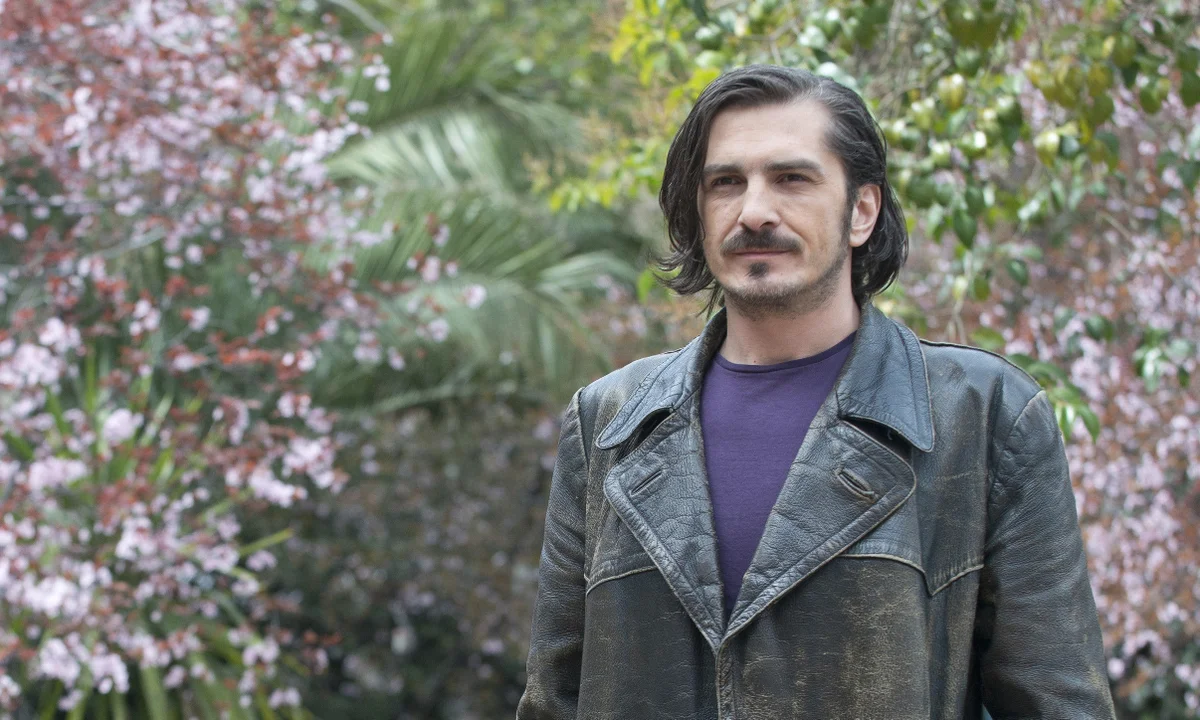A Bosnian actor who was deported from Serbia this week has claimed that his expulsion was due to his candid writings about his wartime experiences in the 1990s.
He asserted that under Serbian President Aleksandar Vučić, “there is no such thing” as freedom of expression.
Serbian authorities detained Fedja Stukan when he arrived at Belgrade airport to attend a literary festival, and subsequently put him on a flight to Sarajevo on Monday.
Stukan, an activist, author, and actor known for his role in Angelina Jolie’s 2011 film ‘In the Land of Blood and Honey’, which is set during the Bosnian War, told that Serbian officials had labeled him a “national security risk.”
He suggested, however, that the true reason for his deportation was his forthright writing.
“I wrote a very dangerous book,” he said in a phone interview on Monday evening. “I quit heroin, alcohol, and everything, and became a pilot, father, movie producer, and actor.
I wrote a book about my life. I was a sniper in a war, involved in special combat. So I know things, I know how things were done during the war.”
“I disclosed everything about everyone, and all those nationalists hate me because they know I hit them in the right spot,” he added.
Stukan’s autobiography, ‘Blank’, recounts his experiences from the war in Bosnia to his political activism and Hollywood career.

The 1992-95 conflict resulted in over 100,000 deaths, with Serb forces convicted of war crimes. The war remains a sensitive topic in the region.
On Monday, Stukan, who has previously participated in anti-government protests in Belgrade, criticized Serbia’s leadership, asserting that President Vučić allows a facade of democracy while suppressing dissenting voices.
“There is no such thing,” he said when discussing freedom of speech and expression in Serbia.
Watchdogs and opposition groups have long expressed concerns about the state of democracy in Serbia.
Freedom House recently reported “unfair electoral conditions and numerous irregularities” in the December elections and noted “an increasingly hostile environment for critical journalism.”
Vučić’s office did not respond to a request for comment but has previously labeled Stukan as a “criminal.”
Stukan recounted a dinner in Belgrade with arts industry colleagues where the topic of Serbia’s president arose. “Everyone just lifted their phones and placed them under their legs, on the chair, to cover the microphone.
Everyone did that,” he said. “If you say something against Vučić, you will never get funding for your next project… When discussing Vučić, they whisper.”
The actor noted that he had been expelled from Serbia before but had hoped to return until this latest incident.
Pen International, a writers’ association, expressed “concern” over reports of Stukan’s deportation.
“I think they [the authorities] don’t really know what to do with me and just don’t want me in Serbia,” Stukan said.


